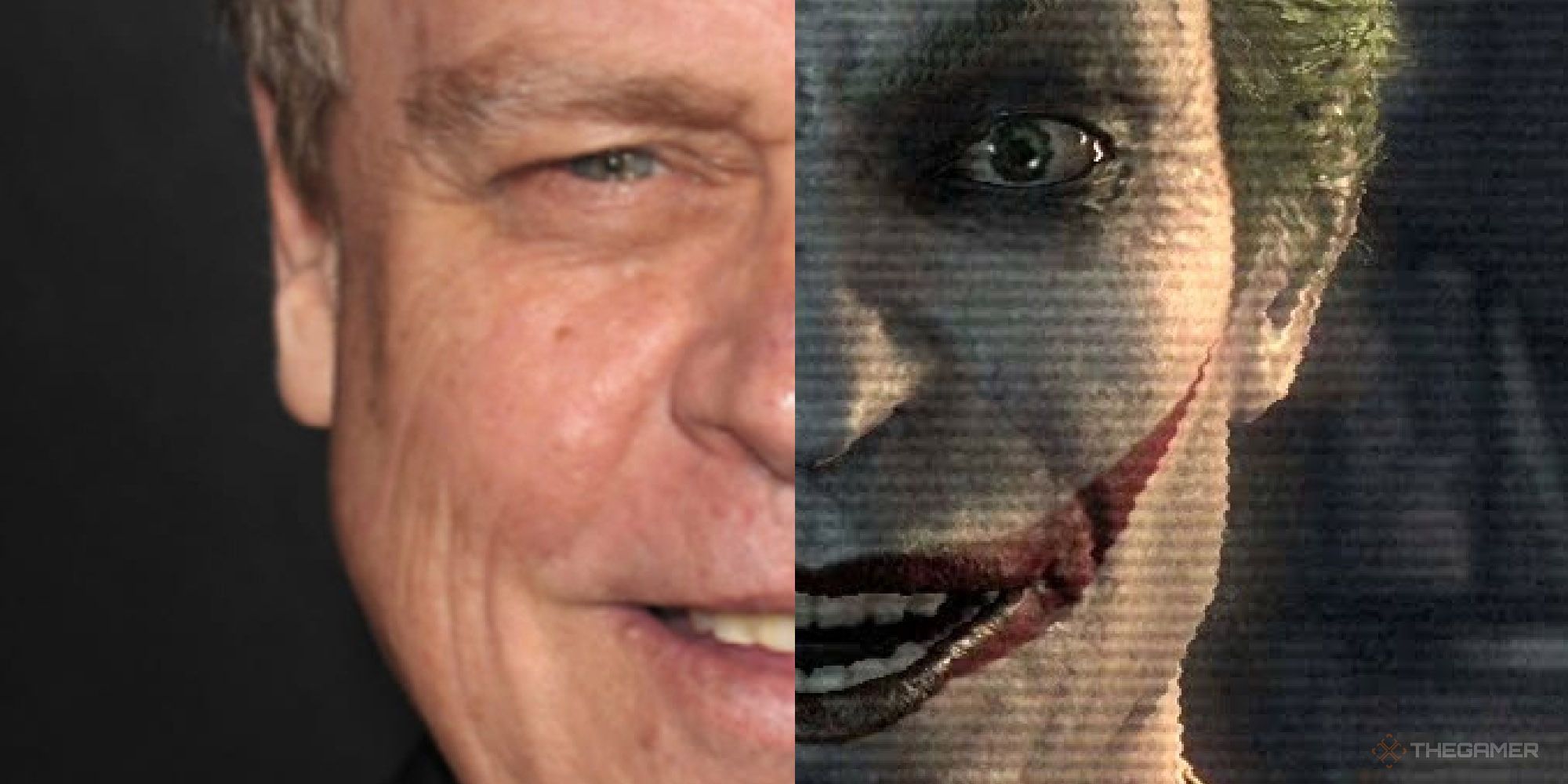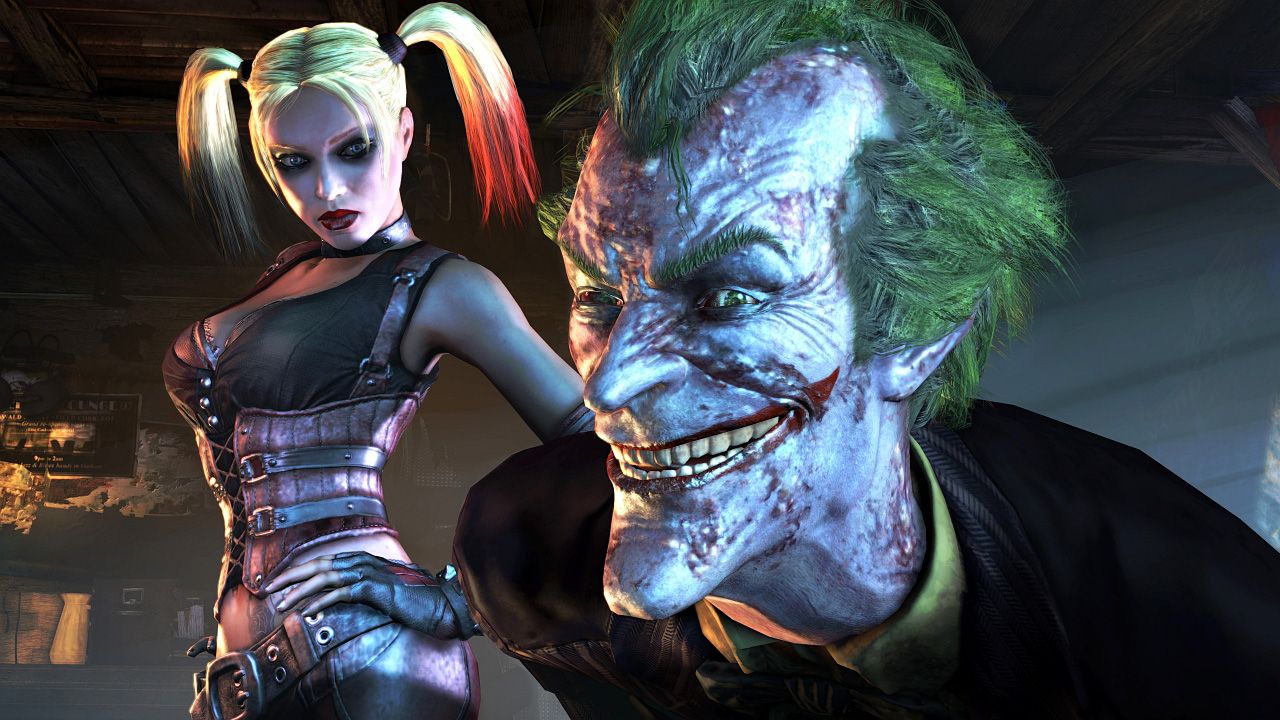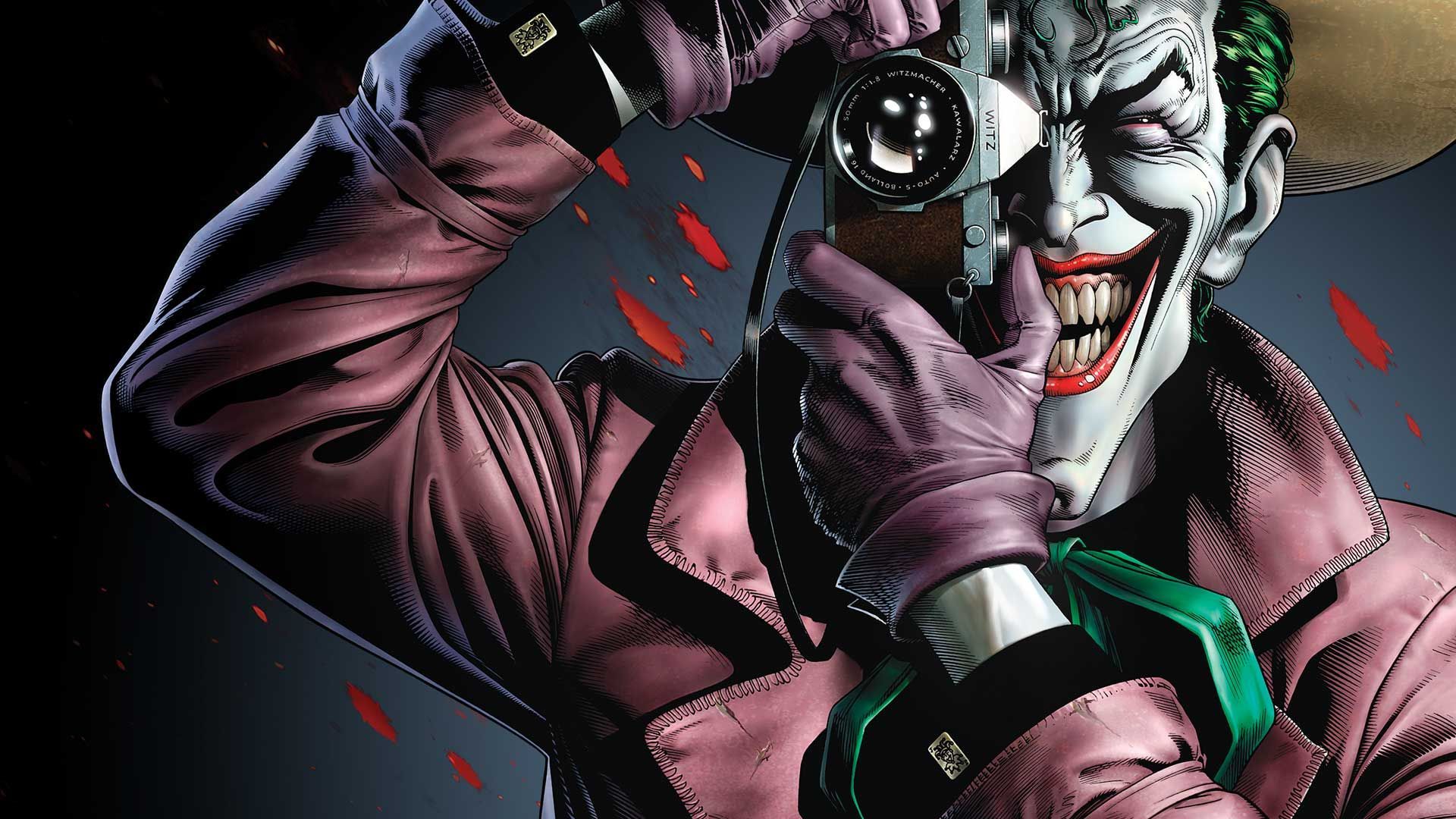Heath Ledger’s legendary performance as the Clown Prince of Crime has rightfully gone down in history as a depiction that will never be usurped. Joaquin Phoenix’s portrayal of the character was equally as revered, causing incels everywhere to sigh in relief as a film finally sympathised with their plight as privileged white men. Both of these iterations of The Joker are fantastic, and land as the favourites of many for several reasons, but they pale in comparison to the excellence of Mark Hamill. To this day, few can match the endless fanaticism Hamill brings to the role, imbuing the character with intelligence and chaos in a way that truly represents what he is capable of. There’s nothing like it.
This week sees Batman: Arkham City celebrate its tenth anniversary, a game where The Joker’s entire arc surrounds his inevitable demise. The once unstoppable criminal is falling victim to a disease he has no control over, so he forces Batman to track down the cure that could bring him back from the brink. Even from such a position of vulnerability, Hamill’s haggard delivery makes him feel like a menace with so many tricks up his sleeve, and the villain’s own mortality doesn’t prevent him from being a nemesis with no equal. He operates from the shadows, his dwindling narration culminating in a death that was completely unexpected at the time, and even today feels like a bold subversion of superhero tropes that remains unmatched. Suddenly, the big bad is gone forever.
Even in Arkham Knight, his presence is unmistakable as a spectre that haunts Batman throughout the campaign, and many spent the entire game questioning whether he was even dead at all. Hamill instills this paranoia, making Batman question his own actions as he must deal with the truth that he failed to save someone, even if it’s the villain who despises him the most in the entire world. By perishing, he won, making Bruce Wayne doubt his position as a hero and how his brand of justice only serves to put the ones he loves most in danger. While Knight provides the character with a fitting conclusion, and Hamill has occupied the role across a selection of different games, films, and television shows, it’s Rocksteady’s Arkham trilogy that provides him the most room to shine. Each line is delivered with playful perfection, lined with a gleeful exuberance that emphasises how unchained and intelligent this man really is.
The opening moments of Arkham Asylum teach us to never underestimate Mark Hamill’s Joker. He has fallen into the hands of captivity with intentions that immediately raise eyebrows. Batman tells Commissioner Gordon and company that something isn’t right, but they’re so obsessed with institutionalising these larger than life villains that they brush off his concerns until it’s too late. The second the clown is free from prying eyes, he murders a duo of guards and darts deeper into the facility, putting a plan into motion that will change Gotham City forever.
His motivations are unclear for several hours as he throws waves of meaningless thugs at us. This is all a game to The Joker - in a way, he’s fully aware he’s already emerged victorious whether this plan is a success or not. He wants to toy with people, twisting them into playthings he can manipulate and throw away like they’re nothing. Hamill sells every moment, whether he’s taunting you from distant television monitors or confronting you in a final boss encounter that is honestly still a teency bit shite, but it’s all about the journey and not the destination. From that perspective, this performance of the character is peerless, and honestly shouldn’t be held up against its cinematic counterparts because it tries something so fundamentally different.
The Dark Knight trilogy and Joker try to depict the character as a real person with flaws and emotions dictating how they behave. Joaquin Phoenix becomes The Joker because of the society he is continually downtrodden by, the economic and social systems of his world deciding he doesn’t belong in it. He tries to fight back and seek help but is beaten down time and time again, so in the end he becomes the inverse of his own personality. He throws on make-up, laughs at the most tragic of circumstances, and inevitably causes Gotham City to rise up in revolution. He becomes a figure to be admired instead of mocked, and all it took was senseless murder and the bravery to take a stand. If you’re admiring him you absolutely watched it wrong. It’s a tragedy of untold proportions that shows just how far broken people are willing to go in the hopes of being accepted.
Heath Ledger’s Joker is similarly cryptic, but his personality is once again built on the chaos that defines modern society. He views the world as being unfair regardless of whether you believe yourself to be morally righteous or depraved. The only way forward is to sow chaos and disorder wherever he goes, burning down monuments in the name of a world he doesn’t believe belongs to anyone. If it wasn’t for the actor’s tragic passing, I imagine the third film would have delved even deeper into this philosophy, and fans have spent years ruminating on what could have been. In comparison, Hamill’s portrayal is outlandish and larger than life, playing on similar themes of societal strife but with a detachment that fits the universe the Arkham trilogy attempts to convey. He’s meant to be over the top, a quality that doesn’t just shine through Hamill’s performance, but his outfit, mannerisms, and wider mission spread across Gotham City. It’s Joker in his purest form, and for me it’s a version of the character that will forever remain my most treasured.
As I replay the Arkham trilogy for the first time since its inception, I can’t wait to relive Hamill’s Joker all over again, to uncover intricacies I was oblivious to as a teenager. Ledger, Phoenix, and Hamill will go down in history as beloved performers, especially in how they brought Joker to life in new and exciting ways, but for me only one can stand out above the rest, and it certainly isn’t winning an Academy Award.




